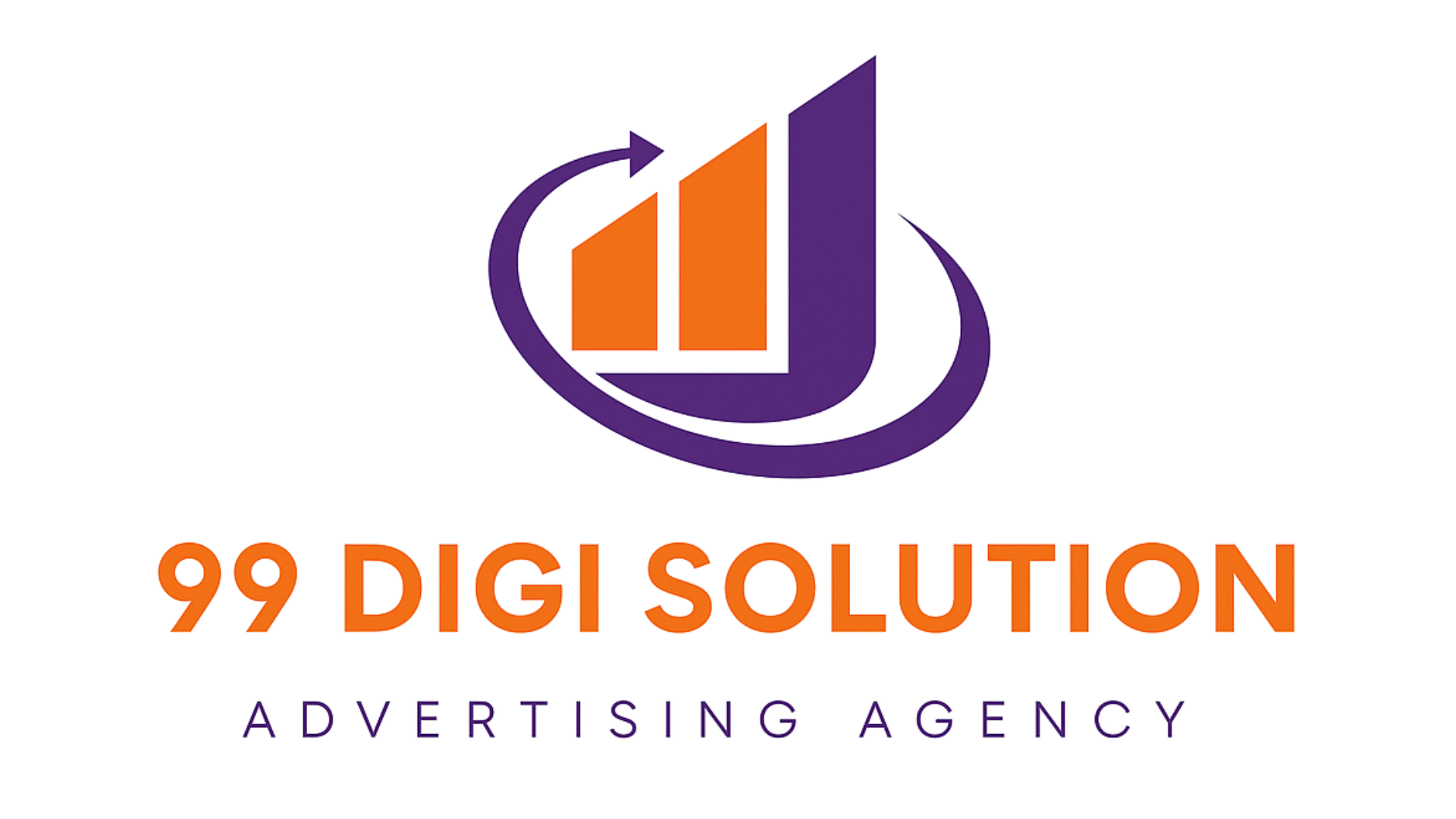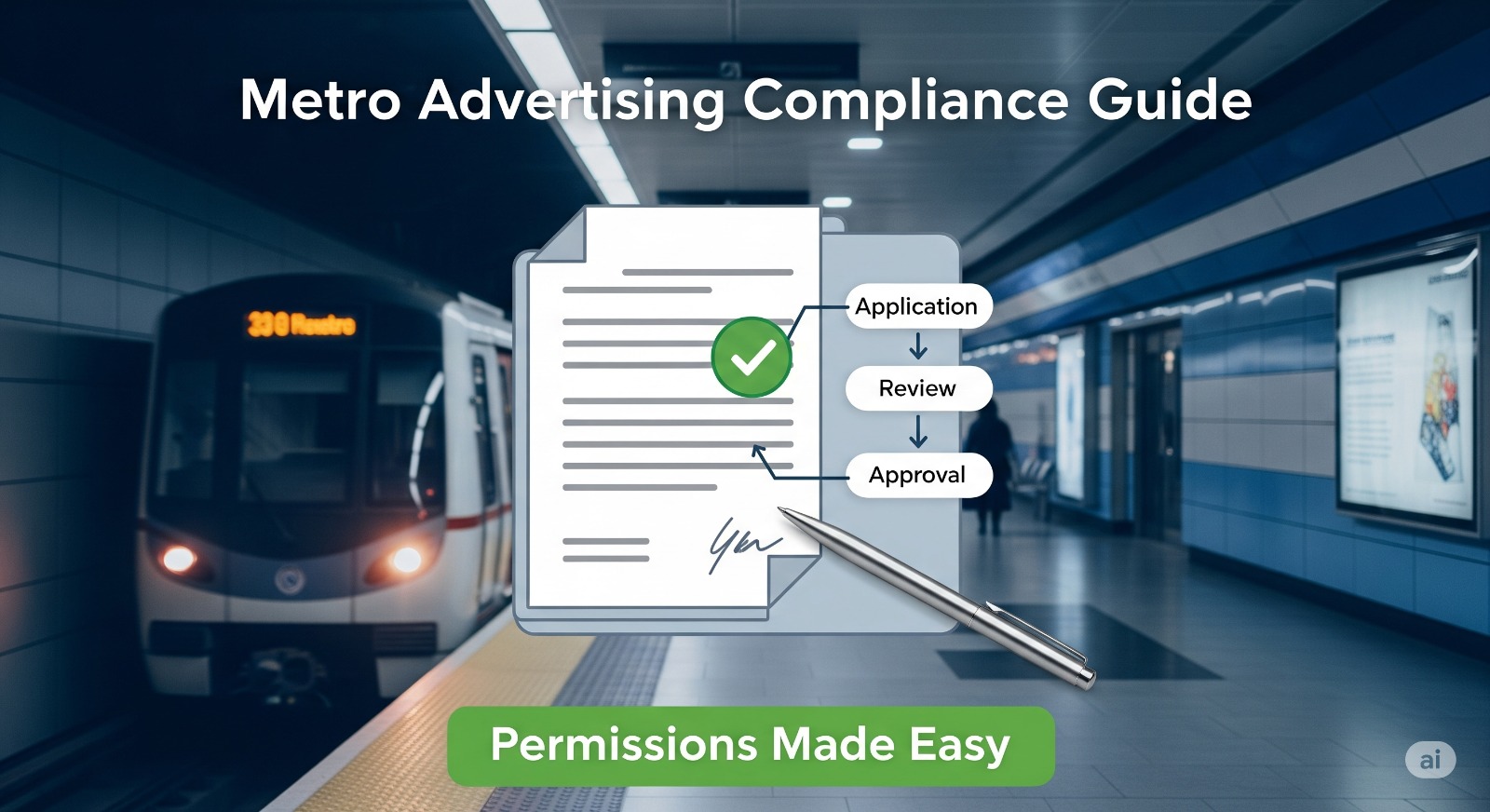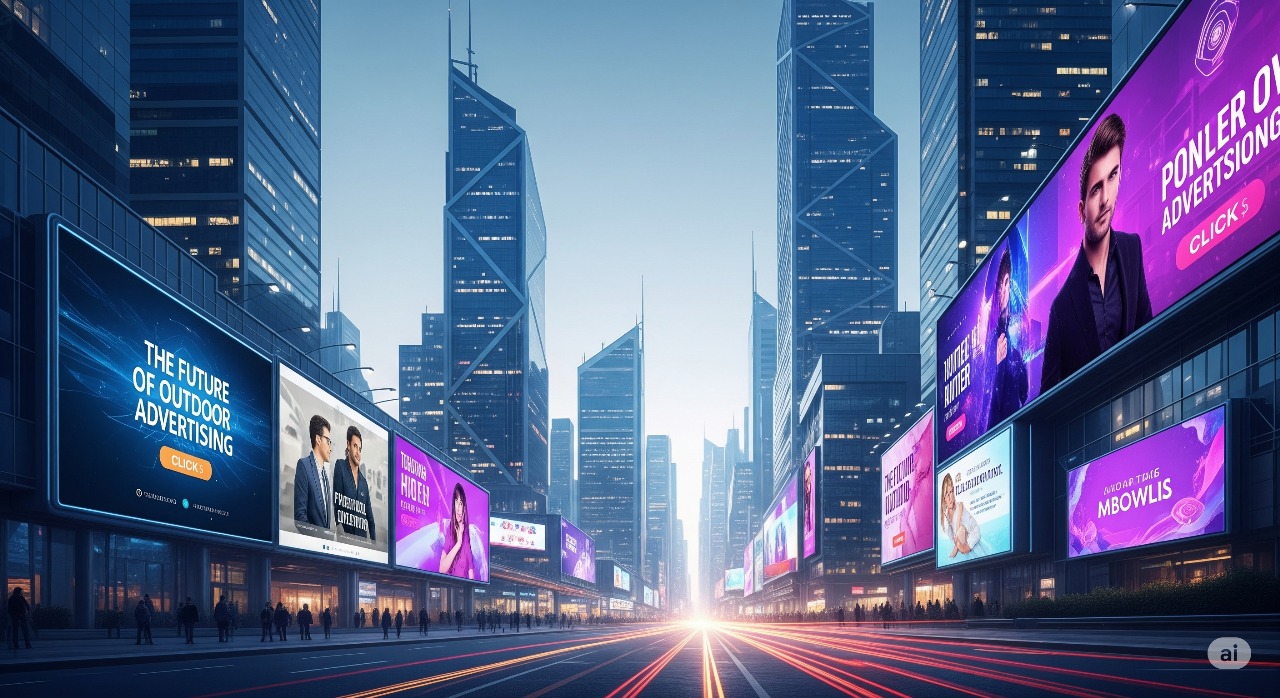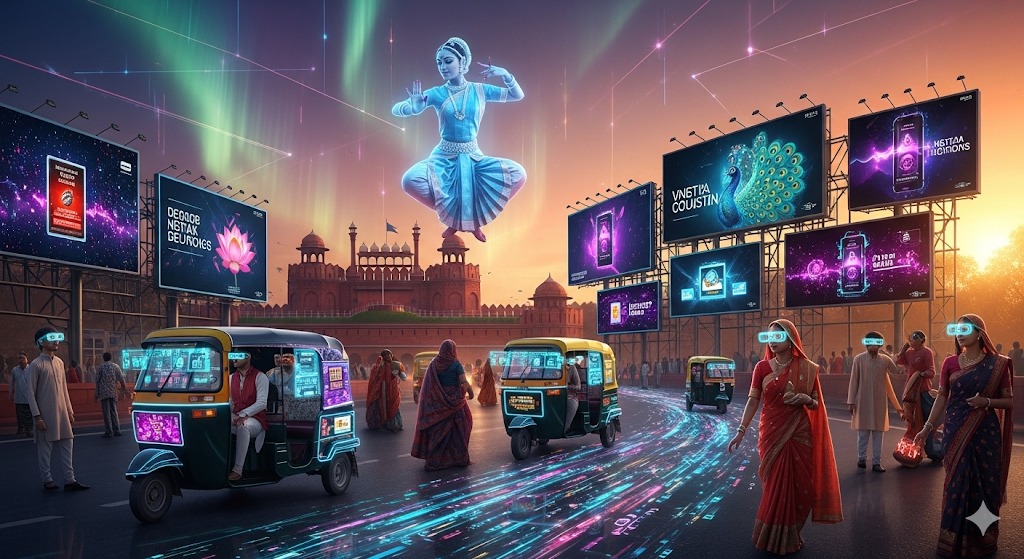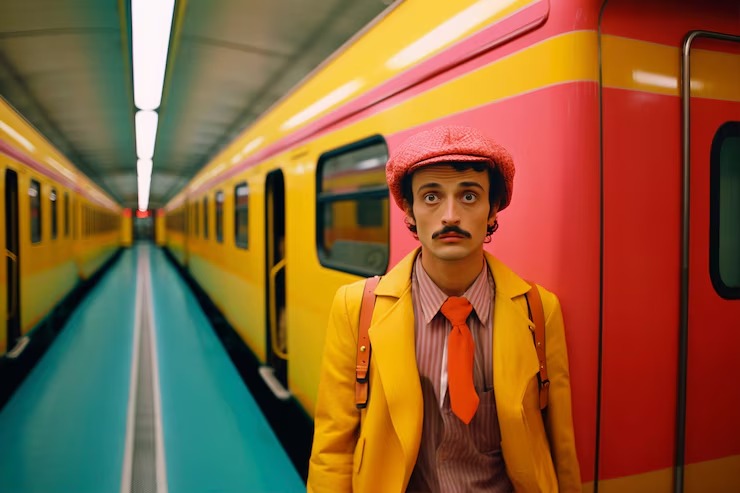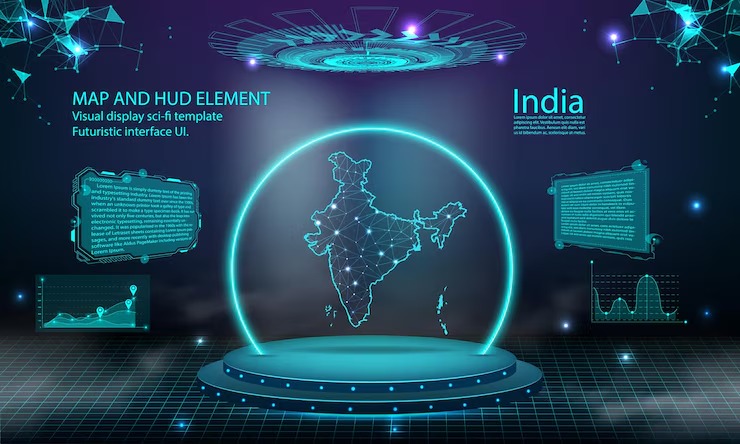metro rail Advertising networks offers brands incredible visibility and reach, but one critical step to running a successful campaign is obtaining the necessary permissions and approvals. Navigating the complex legal and regulatory framework can seem daunting, especially for first-timers. This comprehensive guide walks you through the permissions process for metro advertising in India, helping you launch your campaign smoothly and worry-free in 2025.
Why Metro Advertising Compliance Matters
Metro authorities take regulations seriously to ensure passenger safety, maintain the aesthetic standards of stations and trains, and protect commuter experience. Unauthorized or non-compliant advertising can lead to costly fines, campaign shutdowns, and reputational damage. Securing formal approvals not only keeps you legally safe but can also enhance your brand’s credibility by associating with government-approved platforms.
Step 1: Understand the Metro Advertising Authority and Policies
Each city metro rail corporation (e.g., DMRC for Delhi, MMRDA for Mumbai) manages its own advertising policies. These bodies often outsource media space management to specialized advertising agencies but retain strict oversight.
- Review the specific metro advertising policy published on official websites.
- Note any restrictions on ad content (no offensive material, political ads, etc.).
- Understand the formats and locations allowed for advertising.
Step 2: Choose Your Advertising Format and Location
Different formats (train wraps, station branding, digital screens, audio ads) have different permit requirements and lead times.
- Decide on your ad type based on budget and campaign goals.
- Identify your preferred metro lines and stations based on footfall and target audience.
- Check for any exclusivity or blackout periods for popular locations or formats.
Step 3: Contact Metro Advertising Agencies or Media Owners
Metro rail authorities often authorize official agencies to manage ad inventory and permissions. Examples include:
- Delhi Metro Rail Corporation (DMRC) appointing official media agencies.
- Mumbai Metro’s authorized contractors.
- Bangalore Metro official advertising partners.
Work directly with these agencies as they will guide you on:
- Availability and pricing.
- Paperwork for permissions.
- Compliance checks.
- Campaign execution support.
Step 4: Prepare and Submit Legal Documentation
Typically, the following are required:
- Formal proposal detailing ad locations, formats, dates.
- Sample creative materials for compliance review.
- Proof of identification and business registration documents.
- Contracts and agreements outlining terms and liabilities.
Many metro ad agencies provide templates and assist in filling and submitting these documents on your behalf.
Step 5: Creative and Content Approval
- Metro authorities review all creatives for adherence to guidelines.
- Avoid political, religious, or controversial content.
- Ensure all visuals meet resolution and visibility standards.
- Allow time (usually 7-14 days) for approvals before printing or digital deployment.
Step 6: Security Deposits and Payments
- Pay the required advertising fees and security deposits as instructed.
- These fees may vary by city, station, ad format, and campaign duration.
- Keep official receipts as proof of transaction for future audits.
Step 7: Installation and Campaign Monitoring
- Agencies typically handle installation but require your final approval.
- Campaigns are monitored for compliance during the run.
- Any violations (changed creative without permission, improper placement) can result in penalties or removal.
Step 8: Post-Campaign Clearance
- At the campaign’s end, ensure proper removal of all ads.
- Obtain closure documentation and release of any security deposits.
- Request feedback or campaign reports from your agency to measure effectiveness.
Tips for Smooth Metro Advertising Permits:
- Start the permissions process at least 30-45 days before your planned launch.
- Maintain transparent communication with metro agencies.
- Work with experienced metro advertising agencies for expert assistance.
- Stay updated on metro policy changes or regulatory notifications.
- Retain all correspondence and contracts safely.
Common FAQs About Metro Advertising Permissions
Q: How long does the approval process take?
A: Typically 2–4 weeks, depending on the city and ad format.
Q: Can my ads be rejected?
A: Yes, if they violate content guidelines or technical standards.
Q: Are renewals required for longer campaigns?
A: Usually, contracts specify duration; renewals may be needed for extensions.
Q: Do I need special licenses for audio advertising?
A: Yes, certain audio formats may require extra approvals.
Final Thoughts
Obtaining permissions for metro rail advertising in India involves defined steps but can be complex without proper guidance. By understanding the process, working with official agencies, and preparing all necessary documents thoroughly, you ensure legal compliance and set your campaign up for success.
